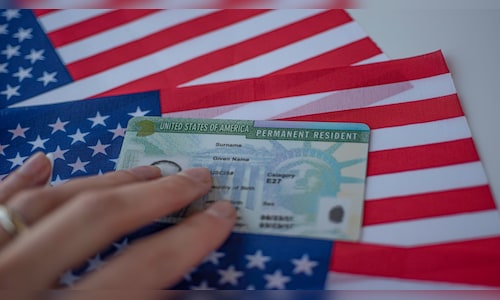The move signals a thaw in diplomatic relations between Washington and Budapest and is one of the first concrete signs of improving ties with President Donald Trump’s administration. Hungarian Prime Minister Viktor Orbán, known for his nationalist policies, has maintained a close relationship with Trump over the years.
The Visa Waiver Programme allows citizens from around 40 countries to enter the US for tourism or business for up to 90 days without requiring a visa. Hungary had faced restrictions in recent years due to concerns over passport issuance and identity verification processes.
In 2021, the US Department of Homeland Security invalidated existing travel authorisations for Hungarian citizens born outside Hungary and suspended the issuance of new electronic approvals for those individuals. Then in August 2023, the Biden administration tightened rules by shortening the validity of travel authorisations for Hungarian nationals from two years to one and restricting usage to a single entry.
????????✈️ Big news: Hungary’s full status in the U.S. Visa Waiver Program has been restored. Starting by Sept 30, all Hungarian citizens will be eligible for 2-year, multiple-entry ESTA travel to the U.S.
Watch Chargé d’Affaires Palladino’s announcement: ???? #ESTA #VWP #USHungary…
— U.S. Embassy Budapest (@usembbudapest) September 16, 2025
“Now that the government of Hungary has taken action requested by the US government to address security vulnerabilities, the restrictions imposed by the previous administration have been lifted,” the Department of Homeland Security confirmed in its statement.
Also read | US removes Romania from visa waiver programme citing security concerns
While Orbán’s relationship with Trump remains notably warm, bilateral relations between the two countries have faced challenges. The Hungarian leader had anticipated a broad economic pact with the Trump administration, though such an agreement has yet to come to fruition.
Additionally, Hungary finds itself at odds with recent US-EU trade developments. A transatlantic trade framework agreed on 27 July introduced a 15% import tariff on most EU goods, avoiding a broader trade conflict but negatively impacting Hungary’s auto sector, which had previously enjoyed a reduced tariff of 2.5%.
Hungary’s continued dependence on Russian energy supplies also complicates its position, particularly as Trump has increased pressure on European allies to accelerate efforts to end energy imports from Russia altogether.
Domestically, Orbán’s hardline stance on immigration has garnered support among US conservative circles aligned with the “Make America Great Again” movement. The Hungarian leader also praised Trump’s recent decision to shut down USAID, the primary American foreign aid agency.
(Edited by : Jerome Anthony)






